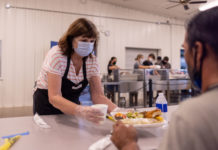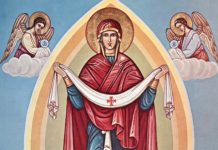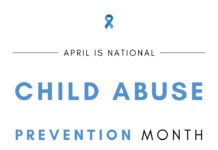
About a year and half ago, Catholic News Service ran a piece by John Thavis on “papabile” speculation — that is, speculation on who might be elected the next pope. If there is one thing we know out here in Phoenix, it’s that we don’t know anything, to echo Socrates. All we really know and trust is that the Holy Spirit will choose and guide the next pontiff.
Nonetheless, here are some of the papabili Thavis spoke about in his 2011 article. (Thavis, by the way, reported on the Vatican for CNS for decades and has won the highest honor given to an individual by the Catholic Press Association, the St. Francis de Sales Award.)
Cardinal Angelo Scola, now 71. Thavis spoke of him because his appointment to the Archdiocese of Milan was the occasion for the report. Wrote Thavis:
What does distinguish Cardinal Scola is that he is very much in line with the thinking of Pope Benedict XVI. Like the pope, he is a respected theologian who sees a crisis of values in modern society and believes the church must mobilize its resources in resisting this slide.
Both men also view education — and more specifically, Christian formation — as a top priority if the church’s members are to successfully challenge the secular drift of contemporary culture. For several years in the 1980s and ’90s, he was a consultor to the Congregation for the Doctrine of the Faith.
The appointment June 28 prompted immediate speculation in the English-language press about Cardinal Scola’s “papabile” rating. In fact, many reporters presumed this made the 69-year-old cardinal the leading Italian candidate in a future conclave.
Thavis wrote there was little consensus at the time in terms of who the strongest candidate would be. Perhaps things have changed. In 2010, one cardinal commented, “We really don’t know each other very well.” That was two years ago. But if they still don’t know each other, it could turn into a longer conclave. Yet several cardinals who participated in the 2005 conclave, according to Thavis, said serious thought happens only after a pope’s death — or in this case, resignation. Wrote Thavis:
One reason Cardinal Scola’s name will automatically figure on lists of papal contenders is that, twice in the last century, archbishops from Milan have been elected pope: Popes Pius XI in 1922 and Paul VI in 1963. Milan remains the country’s most important diocese, with nearly 5 million Catholics. And even after two non-Italian popes in a row, many Vatican-watchers still believe the College of Cardinals will look first to the field of Italians when the time comes.
Thavis also mentioned two other Italian cardinals. Cardinal Gianfranco Ravasi, now 70, a biblical scholar and the current head of the Pontifical Council for Culture. He “demonstrates a huge breadth of culture in his frequent encounters with the press.” But the cardinal doesn’t have experience as a diocesan bishop.
And then there’s Cardinal Leonardo Sandri, who is Italian and Argentine. This, wrote Thavis, makes him “the ideal Euro-Latin American hybrid candidate. Born in Argentina to parents of Italian descent, he heads the Vatican’s Congregation for Eastern Churches and has served extensively in the Vatican diplomatic corps. But he, too, lacks pastoral experience as the head of a diocese.”
Thavis also mentioned Canadian Cardinal Marc Ouellet, now 68. His name appears on many “papabile” lists. He now heads the Congregation for Bishops but was previously the archbishop of Quebec. There seems to be plenty of speculation that the next pope will be non-European. If that’s true, Cardinal Oullet may have a better chance. But we heard similar speculation in 2005.
Along those lines, Honduran Cardinal Oscar Rodriguez Maradiaga, now 70, could be a possibility. He has headed the Archdiocese of Tegucigalpa since 1993. Wrote Thavis in 2011: “Considered a leading Latin American candidate in 2005, he has been an energetic pastor at home and an influential voice on social issues in the international arena.”
Thavis also signaled the possibility of Cardinal Juan Cipriani Thorne, now 69, as a candidate. The cardinal is a member of Opus Dei and is archbishop of Lima, Peru. Wrote Thavis: “He is a former basketball star and obtained an engineering degree before becoming a priest. As archbishop of Lima, one of Latin America’s biggest dioceses, he has amplified the church’s voice in political affairs.”
The “papabile” lists are often dominated by cardinals in their late 60s, wrote Thavis. But that can be misleading. Older cardinals are often better known, as 78-year-old Cardinal Josef Ratzinger was when he was elected.
While Thavis didn’t mention him, Cardinal Peter Turkson of Ghana, 64, appears on many papabile lists. So does New York Cardinal Timothy Dolan. And there are many others. While it might be fun to speculate about who the next pope will be, only God knows. And it’s good to remember — especially during this Year of Faith — that it will be God who chooses the next shepherd of His Church.






